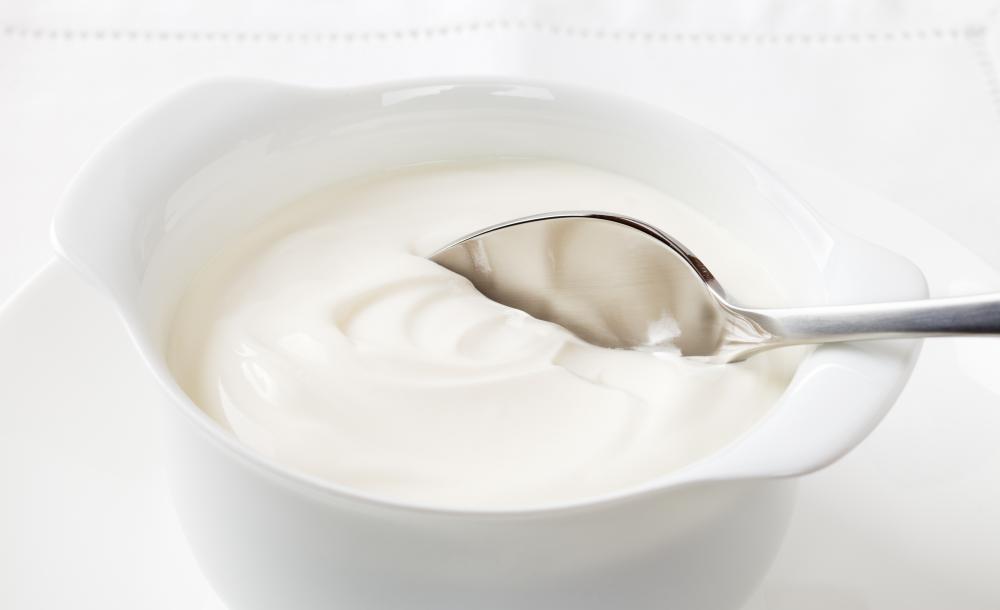At DelightedCooking, we're committed to delivering accurate, trustworthy information. Our expert-authored content is rigorously fact-checked and sourced from credible authorities. Discover how we uphold the highest standards in providing you with reliable knowledge.
What is L-Cysteine?
L-cysteine is a naturally occurring amino acid that is classified as a protein amino acid. One of the main functions of l-cysteine is the promotion of stomach lining health and also the correction of situations where the absorption of essential nutrients from food sources takes place. Many people are able to obtain as much of this protein source as they need without taking any type of supplement. L-cysteine can be found in a number of foods ranging from meats to dairy and vegetable sources.
L-cysteine in the form of cysteine is found in many different protein sources. Chicken, turkey and pork are all good sources of cysteine. Even many varieties of processed luncheon meats contain this amino acid. Cooking does not destroy the presence of cysteine and in some cases may even help to enhance the absorption.

When it comes to dairy products, l-cysteine as cysteine can be obtained from eggs and milk. Products such as ricotta and cottage cheese are also good sources. Plain yogurt and whey protein products also provide cysteine in a natural form. Onions, garlic, and broccoli are just a few of the vegetables that contain cysteine and provide good dietary resources when there is a need to augment l-cysteine levels in the body.

While most people do not require any additional l-cysteine in the body, there are exceptions. Infants may sometimes need l-cysteine in order to absorb nutrients from food properly. Elderly persons may need the amino acid for the same reason. When any type of ongoing disease that impacts the ability to metabolize nutrients properly, there may be a need to use a supplement in order to provide a higher quality of life.

L-cysteine is also effective in situations where an individual has taken huge amounts of acetaminophen and is in danger of overdosing as a result. The l-cysteine converts to n-acetylcystine in the system and helps to counter the effects of an acetaminophen overdose and give the individual a good chance for a full recovery.
When an l-cysteine supplement is desirable for some reason, it is possible to purchase the product at a number of retail outlets. In addition to vitamin shops and health food stores, it is also possible to purchase the supplement at a number of online herbal stores and discount vitamin suppliers.
AS FEATURED ON:
AS FEATURED ON:

















Discussion Comments
Does this come from an animal?
It is primarily extracted from human hair collected in barber shops in China. Other sources are poultry feathers.
Answers: Post 4: Hair is 17.5% cysteine. Studies have been done with sheep but as far as I know, not with humans yet.
@Post 5: It depends on the source. Brown rice protein is 2.4 percent cysteine, which is by far the highest, though by volume brown rice is only 9 percent protein. Soy, pea, and hemp are far lower. I take 50-100g of brown rice protein powder a day. I get protein from Truenutrition. Pure rice protein is too chalky so I mix it with others; 75 percent rice/25 percent pea is still 2.2 percent cysteine.
@Post 6: In chemical form, probably not. In supplement form, yes.
@Post 7: I hope not, although it would be efficient. It would also be carcinogenic.
@Post 9: I would hesitate to take either in a pure form unless for medical reasons (insulin/drug detox), in which case your doctor hopefully knows the answer. For other general health situations, try obtaining cysteine through as natural a source as possible.
which is better and safer to take L-cystiene or glutathion?
Is this made by crystallizing human hair?
Is there a way to be sure L-Cysteine is not from pork?
is it vegan? why or why not?
Does L-Cysteine help hair growth or strength?
What is the difference between L-Cysteine and N-Acetyl Cysteine?
What is the difference between L-Cysteine and N-acetyl cysteine?
Post your comments